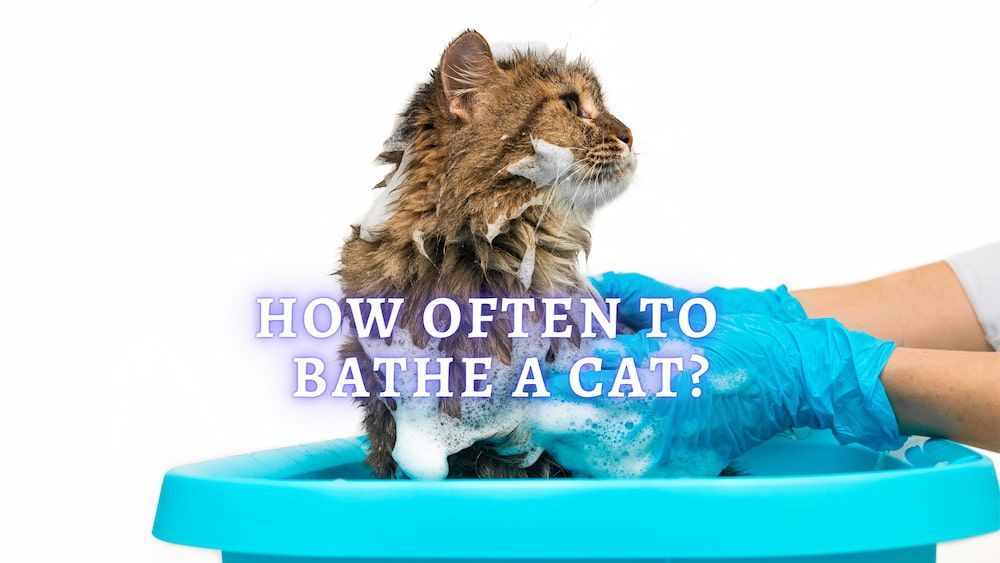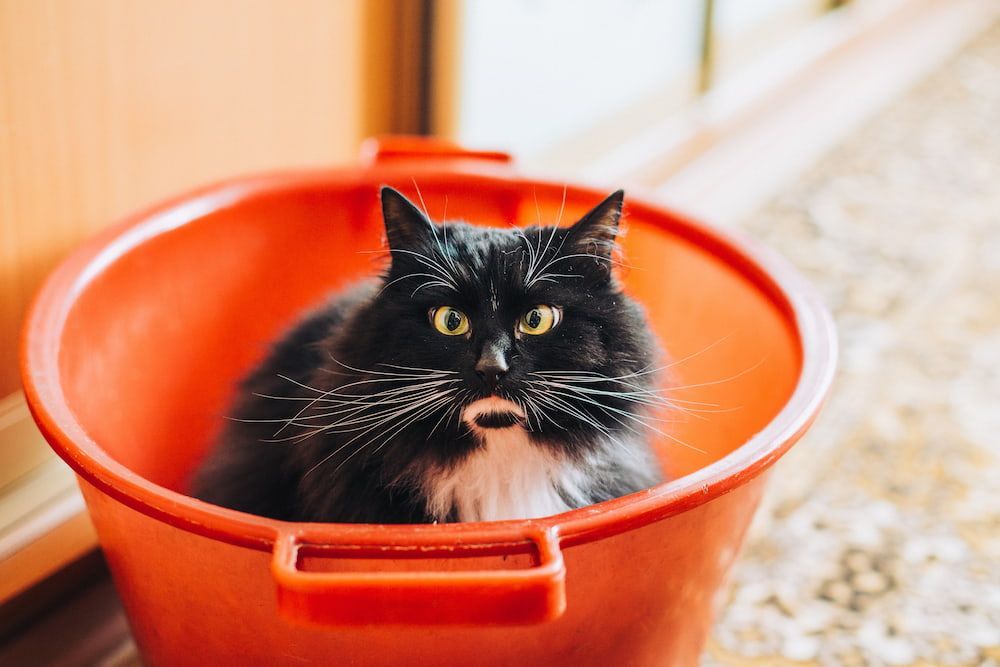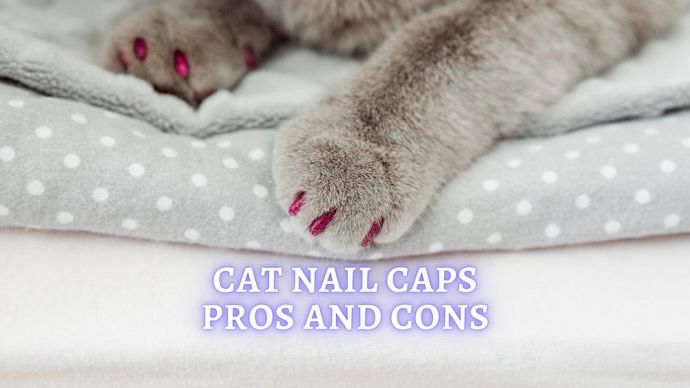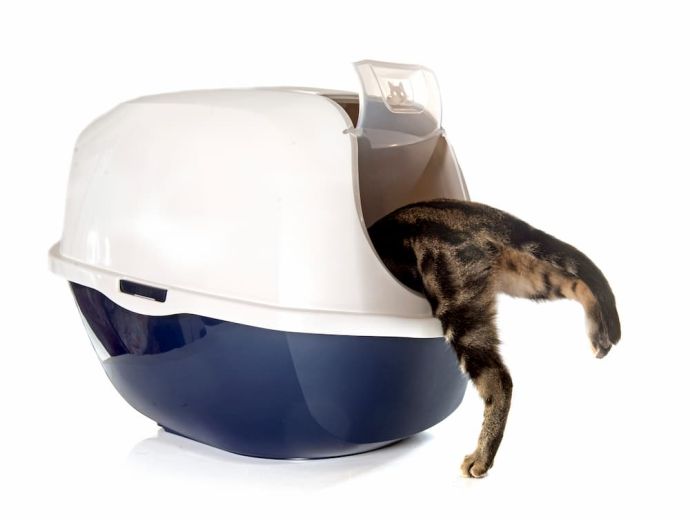How Often Should I Bathe My Cat? (Vet-Approved Advice)
Written by:
Author: Scott Jeffrey
Scott is a professional blogger with 12+ years of experience in writing, and holds an MA in anthropology. He has two cats as housemates. Also, Scott is passionate to research on pet-related topics such as dog training, puppy feeding, and cat health.
View all 63 articlesLearn about our editorial process and veterinary review board.
Reviewed by:
Veterinary review
by Dr. Linda Simon
Dr. Linda Simon is a veterinary surgeon working with seven years of experience. She is a fellow of the British Veterinary Association and specializing in animal medicine. Also, she has been the Woman magazine resident vet for the past two years and writes a regular column for them, focusing on pets and their health.
View all 30 articlesLearn about our veterinary review board
Viewed: 139
Updated on: 03/07/2023
The appearance of your cat’s coat and skin can indicate its overall health. A pet with a healthy coat of fur with no medical issues would usually not need to be bathed. In general, pets are very clean animals and will groom themselves regularly. This ensures their coat is not matted and their oil spreads naturally along their fur.
However, if your pet is unwell or gets particularly dirty playing outside, it may need to be bathed. If their fur is especially matted and tangled, they may require professional grooming to keep them clean and prevent skin inflammation or infections. In some situations, a veterinarian may recommend that the owner brushes and/or bathes the pet more regularly.
Bathing a pet can be challenging for most owners as it is not a natural behavior for cats. Most cats do not like the water and will become agitated with the process. Be gentle when cleaning, and ensure your pet feels comfortable throughout the experience. Cleaning too aggressively can cause stress, which can harm their overall health.
When possible, avoid baths. When a cleaning is needed, consider if you can get away with a sponge or only wash the soiled area rather than the whole body.
Dr. Linda Simon
If you need to clean your cat, check out more in this article on the process; how often to do it, and how to handle some of the challenges of wash pets:
How often is it okay to bathe an indoor cat?
Bathing a pet is something other than what you should regularly take if you have an indoor pet. No clean is needed as long as they don’t have a skin condition or their coat is not excessively matted or dirty.
Long-haired pets may require more frequent cleaning and brushing after the
cleaning process. If your feline friend is getting regular hairballs, washing them during seasonal changes can be beneficial when shedding can grow more excessively. This will improve their coat care and reduce the number of hairballs they produce. However, daily brushing would usually suffice.
If your kitty lies in some stool, oil, or dirt, you could wet down the area and rub the substance away using shampoo without giving them a full clean. If the area is smaller, it is often easier to use a wet cloth and gently wipe it.
Overall, it is essential to remember that most pets are naturally clean animals and do not need frequent baths but can benefit from them under certain circumstances. If you have any questions or concerns about your pet’s health, it is best to consult a veterinarian to determine the best action plan for your pet.
READ MORE: How often should you Comb your Cat?
Benefits of giving your cat a bath:
There are some great benefits to regularly cleaning your pet. Helping them with a regular clean will:
- Remove excess oils in hairless breeds such as the Sphynx, preventing skin disease.
- Allow the owner to check a pet all over, ensuring their skin is in good condition and checking for any ‘lump, bumps or scabs.’
- Eliminate excess dirt, oil, and other debris, particularly for those animals who struggle to groom e.g. senior or obese cats.
- Clean away stool and urine in a pet who is soiling themselves due to e.g. incontinence or mobility issues.
- Reduce hairballs and reduce the amount of pet fur in your home.
Tips for cat baths:
Note: It is not advised we clean young kittens as they can struggle to regulate their body temperature. If your cat is distressed by baths, even at a young age, do not force the issue.
Dr. Linda Simon
- Start cleaning your indoor or outdoor cat at a young age and make it a routine: Introducing them to the bath early can help them get used to it. And, by making it part of their regular grooming routine, you can ensure that it’s not too much of a shock for them.
- Be gentle and patient with your pet during bathing: Cats are naturally skittish as they are being put into water, especially in a washbasin or sink.
- Use a smaller tub or mat with a jug. Don’t use your full bathtub.
- Be careful around their face, as this is the most sensitive area. It’s best to use a soft washcloth or flannel here rather than directly scrubbing.
- It’s often better to use warm water instead of cold water when you’re cleaning your pet. And make sure the temperature is comfortable for bath time. Lukewarm water for a damp cloth and avoiding using a shower head are important for a cat bath.
- Use shampoo for cats. Baby shampoo can be harmful to the pH of your pet’s skin. Some cat shampoos do not lather and are very safe for your cat’s skin during a clean. Always follow directions on medicated shampoo given by your vet.
- Prepare a soft towel to pat down your pet after you are done. Don’t use a blow dryer as it can dry out skin, and the noise is not often tolerated.
- Reward your pet with kind words and a tasty treat after, so they know they’ve done well, and they grow to enjoy clean time.
When do I not need to bathe my cat?
Your pet likely has its own grooming routine; if it is younger, it may require less help. If there are small spots that can be wiped away with a cloth, this can be helpful to avoid a full bath. Brushing away dirt can also be a good start to grooming if your cat doesn’t tolerate water well.
Overall, it is best to find ways to minimize exposure to water if your pet has not been bathed from a young age and if they get very stressed during a clean. Only bathe a pet when necessary and wipe them down or use a sponge bath when possible; avoid a full bath.
READ MORE: How to Restrain Cat to Clip Nails
What to do if my cat is dirty but will not tolerate a bath:
If your pet is dirty and won’t tolerate a clean, try to wipe at the area where they need a bath the most. A soft brush can also help remove mud or mats. Gentle brushing over a short period of time with lots of treats could help you to escalate to using a washcloth and water alongside some brushing.
My cats fight after having a bath. Is this normal?
If you have multiple pets and you find that they are more prone to aggressive behavior after a clean, it’s completely normal. Cats are very sensitive to smell, and baths, even with cat shampoo, will change their scent. The pet who has been bathed may also have higher adrenaline levels than normal, putting them into ‘fight or flight’ mode.
It is best to separate your pets after clean time so they can groom themselves and bring back more of their natural scent before seeing each other again.
RELATED: Why Does My Cat Attack My Legs?
Can I use human shampoo on my cat?
Always use a vet-recommended shampoo on cats. Even sensitive shampoos like baby shampoo are not recommended for pets, as they are not formulated for the pH balance of cat skin and can dry out their skin and coat.
If your pet needs additional cleaning beyond regular brushing and combing, use a specific cat shampoo for its coat type and follow your vet’s recommendations. There are over-the-counter flea and medicated shampoos, but it is usually best to use a veterinarian-prescribed shampoo for the best results.
Finally, reward your pet with treats and cuddles after a clean as positive reinforcement, so they associate baths with something positive! With enough patience, you both can look forward to stress-free baths as part of the grooming routine.
FAQ:
Should cats get a bath once a week?
It’s excessive to bathe your cat every week – they typically groom themselves regularly and don’t need frequent baths. Most cats do not need to be bathed, but those with certain medical issues or who get very dirty may need help with their washing.
Does an indoor cat need baths?
Indoor cats will need baths less often than outdoor cats, as they are not exposed to the same dirt and debris that would require a bath. An indoor cat may never need a bath.
Is it necessary to bathe a cat?
No, it is usually not something healthy cats require. Some cats can benefit from occasional baths as part of their grooming routine. This helps to keep their fur clean and to remove excess grease or dandruff. Bathing your cat does not need to be a weekly activity; brushing them regularly and using the occasional wet cloth for spot cleaning should be enough for general upkeep.
Many felines will not tolerate baths very well and they can cause a great deal of stress. Check with your vet if there are alternative grooming methods if this is the case. Overall, find ways to minimize exposure to water if your cat has not been bathed from a young age and if they find it stressful.
Can I bathe my cat every 2 weeks?
Bathing a cat every two weeks may disrupt its natural grooming routine. It is unnecessary to bathe a cat that often, and it can dry out its skin and coat. If your cat gets dirtier more often than usual, wiping down the affected area with a wet cloth should suffice until they need their next bath.
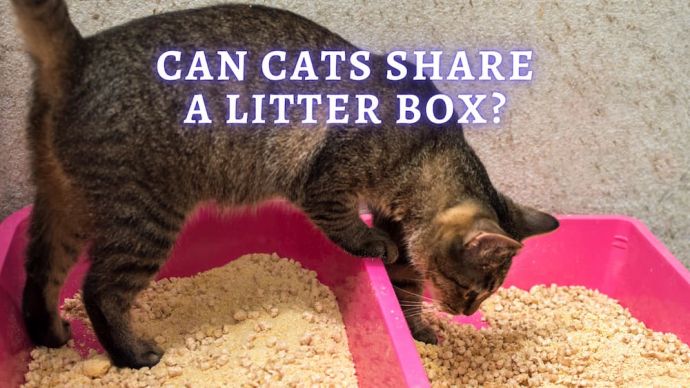 Cat Care Can Cats Share a Litter Box? How Many Boxes Should Be in a Multi-Cat House?
Cat Care Can Cats Share a Litter Box? How Many Boxes Should Be in a Multi-Cat House? - 232
- 1
 Cat Care How to Get an Aggressive Cat Into a Carrier? 6 Methods to Get a Cat Into a Carrier
Cat Care How to Get an Aggressive Cat Into a Carrier? 6 Methods to Get a Cat Into a Carrier - 1602
- 0
 Cat Care Why Does My Cat Attack My Legs? 10 Reasons Why and What To Do About It (Vet-Approved Advice)
Cat Care Why Does My Cat Attack My Legs? 10 Reasons Why and What To Do About It (Vet-Approved Advice) - 46013
- 21
 Cat Veterinary Tips Cat Stomach Gurgling: Vet Advice on Why is Your Cat Stomach Gurgling?
Cat Veterinary Tips Cat Stomach Gurgling: Vet Advice on Why is Your Cat Stomach Gurgling? - 36469
- 4
 Cat Veterinary Tips My Cat Lost its Voice: Can Cats get Laryngitis? (Vet Advice)
Cat Veterinary Tips My Cat Lost its Voice: Can Cats get Laryngitis? (Vet Advice) - 23554
- 13









